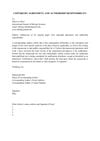29 citations,
October 2017 in “Journal of proteomics” The research found specific proteins that affect fiber characteristics and hair growth in sheep and goats.
 July 2020 in “International journal of biology sciences”
July 2020 in “International journal of biology sciences” Coconut oil mixed with egg yolk and vitamin E may improve rabbit hair growth more than other plant oils.
[object Object] July 2024 in “International Journal of Molecular Sciences” RF-based therapies might help treat hair loss.
 46 citations,
September 2014 in “Steroids”
46 citations,
September 2014 in “Steroids” Plant steroid hormones show growth, health, and medicinal benefits in various organisms, including potential for treating diseases.

Plant roots respond to fungus smells by possibly using certain proteins and a plant hormone to change root growth, but more research is needed.
317 citations,
April 2018 in “Journal of steroid biochemistry and molecular biology/The Journal of steroid biochemistry and molecular biology” PCOS is a complex condition in women that can lead to health issues, and lifestyle changes are the best management approach.
107 citations,
April 2014 in “The Plant cell” The CAP1 gene helps control ammonium levels and is necessary for the proper growth of root hairs in Arabidopsis.
 October 2020 in “Journal of Pharmaceutical Sciences”
October 2020 in “Journal of Pharmaceutical Sciences” Topical finasteride with EGCG or TA improves drug release and dermal uptake, potentially treating hair loss effectively.
 37 citations,
January 2015 in “Evidence-based Complementary and Alternative Medicine”
37 citations,
January 2015 in “Evidence-based Complementary and Alternative Medicine” An extract from Quercus acutissima bark was found to reduce sebum production and block an enzyme linked to acne.
 1 citations,
January 2017 in “Indian Journal of Pharmaceutical Sciences”
1 citations,
January 2017 in “Indian Journal of Pharmaceutical Sciences” Women with PCOS often have different clinical signs, hormone levels, and gynecological issues compared to those without the condition.
 3 citations,
May 2021 in “Evidence-based Complementary and Alternative Medicine”
3 citations,
May 2021 in “Evidence-based Complementary and Alternative Medicine” Some traditional Chinese medicines may have anti-aging benefits and could help with hair growth, but more research is needed.
 1 citations,
October 2021 in “Indian Journal of Plastic Surgery/Indian journal of plastic surgery”
1 citations,
October 2021 in “Indian Journal of Plastic Surgery/Indian journal of plastic surgery” Proper hair care and safe use of hair products are crucial for those with hair loss.
 80 citations,
April 2011 in “Plant physiology”
80 citations,
April 2011 in “Plant physiology” White lupin uses specific genes to grow root hairs and access phosphorus when it's scarce.
 7 citations,
January 2021 in “Evidence-based complementary and alternative medicine”
7 citations,
January 2021 in “Evidence-based complementary and alternative medicine” Porphyra-334 may help reduce wrinkles and promote hair growth.
 9 citations,
April 2021 in “Evidence-based complementary and alternative medicine”
9 citations,
April 2021 in “Evidence-based complementary and alternative medicine” Guilu Erxian Glue may help reduce chemotherapy side effects like weight loss and heart stress.
 August 2024 in “Plant Signaling & Behavior”
August 2024 in “Plant Signaling & Behavior” OsPRX83 helps rice survive stress by improving stress response and antioxidant activity.
2 citations,
February 2024 in “Pharmaceutics” Chitosan scaffolds with silver nanoparticles effectively treat infected wounds and promote faster healing.
 2 citations,
December 2023 in “Current Pharmaceutical Biotechnology”
2 citations,
December 2023 in “Current Pharmaceutical Biotechnology” Nanocarriers can improve the effectiveness of herbal medicines in treating colorectal cancer.
[object Object]  1 citations,
October 2023
1 citations,
October 2023 Syntax-based neural networks can match Transformers in handling unseen sentences.
 August 2023 in “International Journal of Molecular Sciences”
August 2023 in “International Journal of Molecular Sciences” Liposomes show promise for delivering CRISPR for gene editing but face challenges like delivery efficiency and safety concerns.
 11 citations,
January 2014 in “International Journal of Trichology”
11 citations,
January 2014 in “International Journal of Trichology” Witch hazel-based hair products improved scalp irritation and were well-tolerated.
 56 citations,
December 2011 in “The Plant Journal”
56 citations,
December 2011 in “The Plant Journal” AGD1 is important for root hair development in Arabidopsis, working with phosphoinositide signaling and the actin cytoskeleton.
 19 citations,
August 2010 in “Journal der Deutschen Dermatologischen Gesellschaft”
19 citations,
August 2010 in “Journal der Deutschen Dermatologischen Gesellschaft” Certain plant extracts can effectively treat skin conditions like athlete's foot, chronic vein problems, sun damage, skin growths, vitiligo, and hair loss, and may also improve skin appearance.
 25 citations,
May 2020 in “Progress in Organic Coatings”
25 citations,
May 2020 in “Progress in Organic Coatings” Castor oil-based polyurethanes are promising for making safe, strong-performing, eco-friendly hair-styling products.
 November 2023 in “Journal of plant nutrition and soil science”
November 2023 in “Journal of plant nutrition and soil science” Boron deficiency in maize affects leaf boron levels and nutrient uptake differently depending on root hair presence and soil type.
 4 citations,
October 2022 in “Microbial Cell Factories”
4 citations,
October 2022 in “Microbial Cell Factories” Certain bacteria from the Citrullus colocynthis plant may be a new source of antibiotics to fight drug-resistant diseases.
 47 citations,
April 2012 in “The Plant Journal”
47 citations,
April 2012 in “The Plant Journal” Phosphorylation of certain parts of the PIN3 protein is crucial for its role in plant root growth and response to gravity.
 84 citations,
June 2010 in “The Plant Cell”
84 citations,
June 2010 in “The Plant Cell” Phospholipase A2 is necessary for the correct placement of PIN proteins in plant roots, affecting root growth.
 January 2025 in “Frontiers in Genetics”
January 2025 in “Frontiers in Genetics” Combining minoxidil and plant extracts improved hair growth in a boy with a rare genetic disorder.
43 citations,
December 2017 in “BMC Plant Biology” GmMAX3b gene in soybeans boosts nodulation and affects hormone levels.























